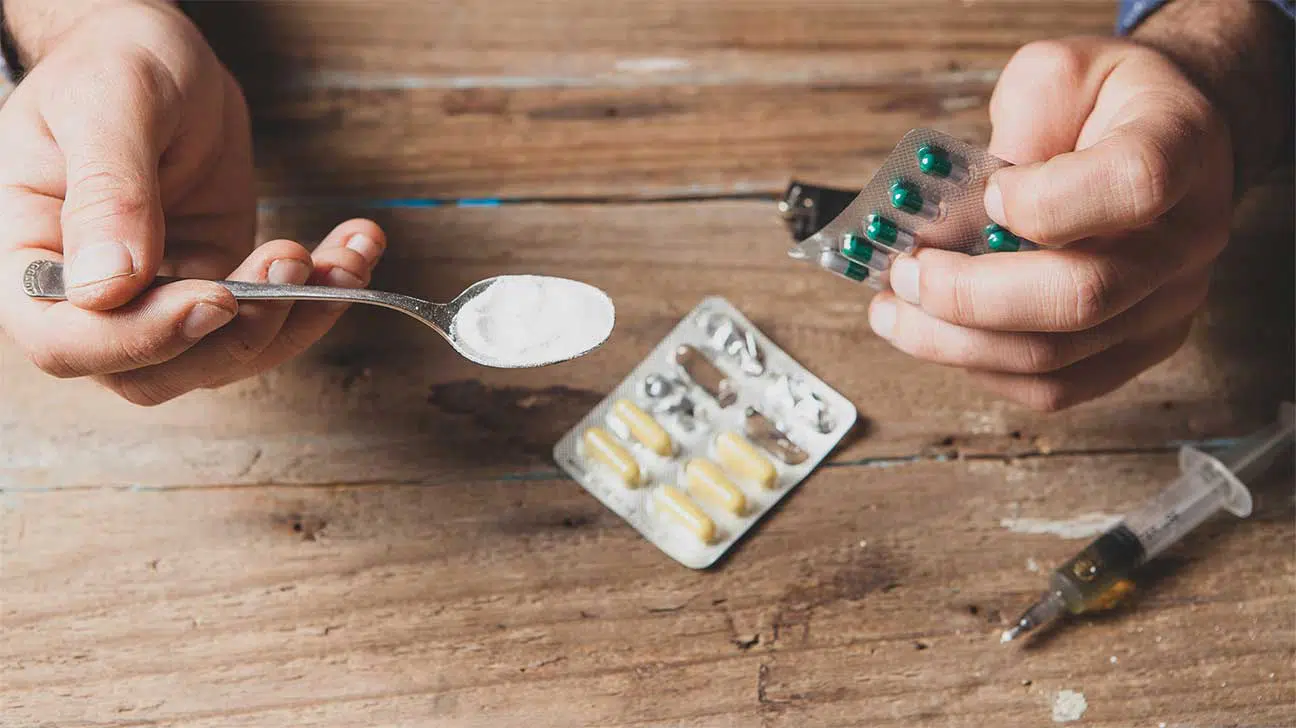
Cocaine and Ritalin are both classified as central nervous system stimulants, meaning that they have similar chemical properties and work in similar ways.
However, cocaine is an illicit drug and Ritalin (methylphenidate) is a prescription medication used to treat attention-deficit hyperactivity disorder (ADHD) and sometimes narcolepsy.
When used together, these two substances can have dangerous results and can lead to overdose or death.
Learn more about the dangers of polysubstance abuse.
Why Do People Mix Cocaine And Ritalin?
People most commonly mix cocaine and Ritalin together to increase the intensity and length of the high.
Someone mixing these two drugs together is most likely not aware of the risks involved and is simply looking for a more intense experience.
What Happens When You Mix Cocaine And Ritalin?
Independently, both cocaine and Ritalin work by speeding up the central nervous system. In a sense, Ritalin does kind of work like a very mild form of cocaine.
Ritalin on its own, when taken in pill form as prescribed, is not known to produce a high. It will, however, amplify the high of cocaine when used in addition to it.
Interestingly, both Ritalin and cocaine are Schedule II drugs, which means they both have a medical use (cocaine is used as a local anesthetic for nasal surgery) and are highly addictive.
Depending on the dosages of the substances and the experience level of the person using them, some people will be much more sensitive to the effects of these drugs than others.
Side Effects Of Using Cocaine And Ritalin Together
Cocaine and Ritalin both increase energy and alertness but can also have some unpleasant side effects. These side effects are amplified when the two substances are taken together.
Side effects of cocaine include:
- insomnia
- chest pain
- diarrhea
- nausea
- anxiety
- bloody nose
- trouble breathing
Side effects of Ritalin include:
- heavy sweating
- headache
- dry mouth
- dizziness
- stomach pain
- restlessness
- vomiting
- irritability
- insomnia
- heartburn
Risks Of Mixing Cocaine And Ritalin
While Ritalin is considered perfectly safe in most situations, when combined with cocaine it can produce serious side effects and even lead to death.
It is also important to note that in rare instances Ritalin has been known to cause severe allergic reactions, which could possibly be more serious if combined with cocaine.
Immediate risks of mixing cocaine and Ritalin include:
- heart attack
- stroke
- shakiness
- hallucinations
- panic attacks
- seizure
- erratic behavior
Cocaine and Ritalin are dangerous whenever they are used together, but can also have long-term consequences as well. The long-term risks are both physical and mental.
Long-term risks of mixing cocaine and Ritalin include:
- increased blood pressure
- increased heart rate
- increased risk of heart attack
- increased risk of stroke
- poor circulation
- weight loss
- social issues
- substance use disorders
- depressive and anxiety disorders
Cocaine And Ritalin Abuse Can Lead To Addiction
If someone has been using cocaine and Ritalin enough to be experiencing long-term effects, they are likely suffering from a polysubstance use disorder.
Using cocaine and Ritalin at the same time will make two substances that are already addictive even more addictive.
Fortunately, many treatment centers today are now prepared to treat polysubstance abuse effectively.
Find Addiction Treatment Today
Are you or someone you love facing drug addiction? You can find treatment today. Call us to learn more about your addiction treatment options.
Addiction Resource aims to provide only the most current, accurate information in regards to addiction and addiction treatment, which means we only reference the most credible sources available.
These include peer-reviewed journals, government entities and academic institutions, and leaders in addiction healthcare and advocacy. Learn more about how we safeguard our content by viewing our editorial policy.
- Medical News Today — What are the effects of Ritalin?
https://www.medicalnewstoday.com/articles/ritalin-effects - National Institute on Drug Abuse — What are the short-term effects of cocaine use?
https://www.drugabuse.gov/publications/research-reports/cocaine/what-are-short-term-effects-cocaine-use - U.S. National Library of Medicine: MedlinePlus — Methylphenidate
https://medlineplus.gov/druginfo/meds/a682188.html


